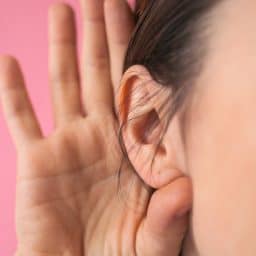Ears and Altitude
Ear problems are the most common medical complaint of airplane travelers, and while they are usually simple, minor annoyances, they may result in temporary pain and hearing loss. Make air travel comfortable by learning how to equalize the pressure in the ears instead of suffering from an uncomfortable feeling of fullness or pressure. Why do…
Ear Infection and Vaccines

Ear Infection and Vaccines Research Researchers continue to look for help for children and parents of children who suffer from the most common type of ear infection, called middle ear infection or otitis media (OM). About 62 percent of children in developed countries will have their first episode of OM by the age of one,…
Day Care and Ear, Nose, and Throat Problems

Who is in day care? The 2000 census reported that of among the nation’s 19.6 million preschoolers, grandparents took care of 21 percent, 17 percent were cared for by their father (while their mother was employed or in school); 12 percent were in day care centers; nine percent were cared for by other relatives; seven…
What is Unilateral Hearing Loss?

What is Single Sided Deafness? Sometimes referred to as unilateral hearing loss, single sided deafness is a condition in which an individual experiences hearing loss in only one ear but can hear normally out of the other ear. While most patients with a hearing impairment suffer from bilateral (two-sided) hearing loss, SSD affects approximately 60,000…
What is Sudden Hearing Loss?

For most people who experience hearing loss, the condition comes on gradually over a period of years. In rare cases, an abrupt loss of hearing occurs with little or no warning. This condition is known as sudden sensorineural hearing loss (SSHL). What is Sudden Deafness? Sudden deafness is an unexplained and rapid hearing loss that…
What is Noise Induced Hearing Loss?

How Can Sounds Hurt Your Ears? Background sound is a constant in our busy lives. Normally, background noises are at safe levels that do not negatively impact our hearing. But repeated exposure to noise above 85 decibels (dB) can cause noise induced hearing loss. The louder the sound, the less amount of time it takes…